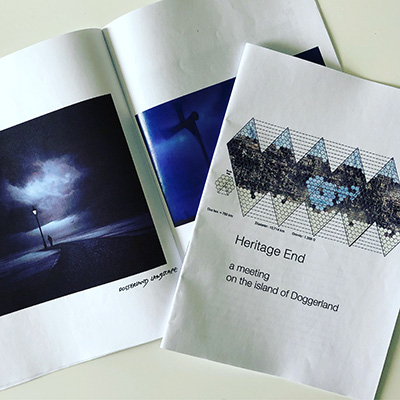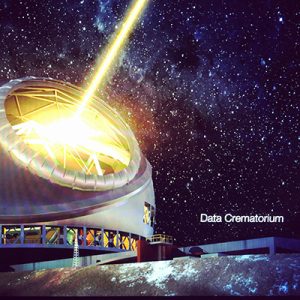Workshop for UNESCO, ICOMOS (International Council on Monuments and Sites) University Forum, Amsterdam, June 2019.
The workshop was part of an ongoing collaboration with the UNESCO Chair on Heritage Futures and AHRC Heritage Futures project.
How to inhabit a future and explore a time and a place where heritage can end with sustainability, dignity, and care? What does it mean for heritage to end when that can include people, places, monuments, and the data entangled in all of these? This workshop allowed participants to join the organiser on the future island of Doggerland, where their marine energy heritage, including buildings and data recordings, is being transformed from matter to energy–and sent to the stars.
The workshop was based on a ‘speculative futures’ short story written by Laura Watts, and edited for the event, which placed the participants on the island, and allowed them to meet the islanders and experience the environment. This story was accompanied by a guidebook of imagery and maps to the island to orientate and inspire participants. The basis for the material was ethnographic fieldwork Watts is conducting in the Orkney islands, Scotland, around the community-made energy futures and consequent contemporary archaeology.
Workshop Outcomes
After the short story was performed aloud, participants were split into groups to focus on different forms of heritage futures: data, people, and place. These group committees were invited to interview a representative the island community trust (acted by Watts), in order to gather sufficient information to make their report, raise concerns, and finally vote on whether the islanders could keep their ‘data crematorium’ open and running.
The whole workshop lasted two hours. It was repeated three times with between ten to fifteen participants in each. The format was adapted and improved during the whole day.
There were some interesting discussions that developed during the workshop, which included: the implications for personhood (what counts as a person) when heritage expands to include monument, person, and digital data; the responsibility to protect outer space as a particular environment; the tension between sustainability and heritage in a place where resources are limited, and heritage could be recycled; how heritage might need to be redefined when a cultural identity is defined by change rather than fixity; how oral storytelling maybe a more enduring form of heritage than digital data or material culture.

